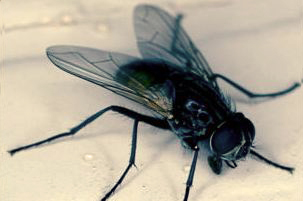EU backs insect in animal feed project

A European Union funded project PROteINSECT aims to change our views about using flies as a source of protein feed for pigs and poultry, but also for human consumption, which is prohibited in Europe.
With almost €3m from the European Commission’s Seventh Framework Programme for research, PROteINSECT wants to provide research that proves the efficacy and safety of insect protein to be used in animal feed. At the moment, insect protein is only allowed in fish or shellfish feed in Europe.
“It is hoped that insect protein will also be permitted in pig and poultry feed in the future, particularly as these animals already consume insects as part of their natural diet,” read a statement from the UK Food and Environment Research Agency (FERA), which is leading the project. The agency and its project partners hope that the European Commission will relax rules to allow the inclusion of insects in poultry and pig feed from 2015.
PROteINSECT was prompted by the increase in the meat consumption in developing countries and thus the need to tap into alternative feed sources. “Insects are increasingly recognised as an excellent protein alternative for use in animal feed,” a project briefing document read, noting that many species are highly nutritious and their production has a lower environmental impact than other feed sources. According to the project, insects can be reared quickly and easily on organic waste, such as vegetables and domestic waste, which would lead to a 60% reduction of that waste.
European regulation recently was relaxed to allow insect protein in aquaculture diets and the project’s coordinators claim that it is likely that this will be extended to include pig and poultry feed by 2015.
For direct human consumption, insects are governed by novel food regulation in Europe, but the researchers say insects are unlikely to require pre-market safety assessment, as many non-EU countries have already demonstrated a history of safe use
PROteINSECT will draw on the expertise of organisations in China and Africa, where there is already a tradition for using insects in food and feed. The Chinese Guangdong Entomological Institute – which has expertise in the rearing of insects, the Malian Institute of Rural Economy, with expertise in sustainable agriculture, and the Ghana non-governmental organisation Fish for Africa are part of the project, which is expected to conclude in 2016.
A young French company Ynsect, has also identified a cheap, nourishing and locally sourced alternative to soybeans as a vital source of protein in animal feed. Black soldier flies, common housefly larvae, silkworms and yellow mealworms were named as among the most promising species for industrial feed output in a report earlier this year by the FAO, the United Nations food agency. According to the FAO, protein such as meat meal, fishmeal and soymeal make up 60 to 70% of the price of feed.












